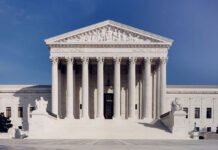SC Quashes Conversion Law Case Against University VC : In a landmark judgment that has stirred debates across the nation, the Supreme Court of India has quashed criminal proceedings initiated under the Uttar Pradesh “Prohibition of Unlawful Conversion of Religion Act” against the Vice Chancellor (VC) and other officials of Sam Higginbottom University. The ruling, delivered on October 17, 2025, underscores the judiciary’s stance on protecting procedural fairness while balancing sensitive religious issues.
“The investigation, as it stands, is flawed and cannot be allowed to continue against the learned Vice Chancellor,” the Supreme Court bench observed.
The case had drawn widespread attention after allegations emerged that the university authorities were involved in coercing students to convert their religion. The UP police had registered an FIR under the state’s controversial conversion law in 2024, which critics have often argued can be misused to target educational institutions and minority communities.
Legal experts hailed the Supreme Court’s decision as a reaffirmation of constitutional safeguards.
Advocate Priya Sharma, who has closely followed the case, said, “This judgment sends a strong message that procedural lapses and vague allegations cannot be used to harass university officials or curtail academic freedom.”
The ruling not only benefits the VC and the officials personally but also has wider implications for higher education institutions in India. Observers note that several universities have expressed concerns over the potential misuse of conversion laws in administrative matters.
What the Law Says
The UP Conversion Law, enacted in 2020, criminalizes religious conversion carried out by force, allurement, or fraudulent means. While the law aims to prevent coerced conversions, human rights activists have argued that the definition of “allurement” is vague and can lead to harassment of legitimate religious practices.
In the past, multiple educational institutions in Uttar Pradesh have faced FIRs under this law, leading to nationwide debates on religious freedom and academic autonomy. The Supreme Court judgment now establishes that mere allegations without proper investigation or evidence cannot stand.
Public and Political Reactions
The verdict has sparked mixed reactions across social media. Some praised the court for upholding constitutional rights, while others demanded a stricter approach toward religious conversions.
Political analyst Ramesh Kumar commented, “This case highlights the tension between state laws and fundamental rights. The court’s intervention was necessary to prevent misuse of the law.”
Implications for Higher Education
For universities across India, this verdict could serve as a precedent to protect administrators from frivolous or politically motivated complaints. Experts say it also encourages educational institutions to maintain transparent policies regarding religious and cultural activities.
Dr. Anjali Verma, an education policy expert, noted, “Universities need clarity. This judgment brings hope that legal overreach will not undermine academic administration.”
Looking Ahead
While the Supreme Court’s ruling has closed this chapter for Sam Higginbottom University, it has reignited the debate on the balance between religious freedom and state regulation. Lawmakers and civil society groups are likely to scrutinize the implementation of conversion laws across the country.
This judgment underscores a fundamental principle of Indian law: every citizen and institution is entitled to procedural fairness, even in sensitive matters involving religion. As India continues to navigate complex social dynamics, the judiciary remains a critical guardian of rights and liberties.
















